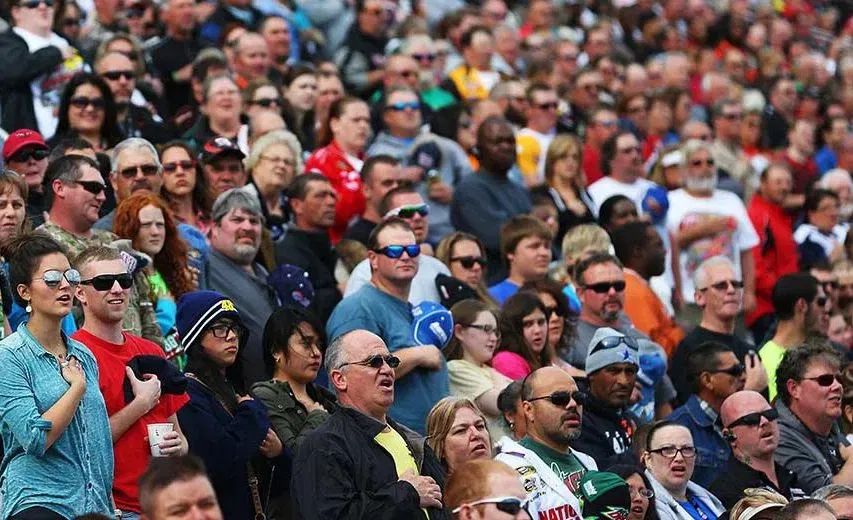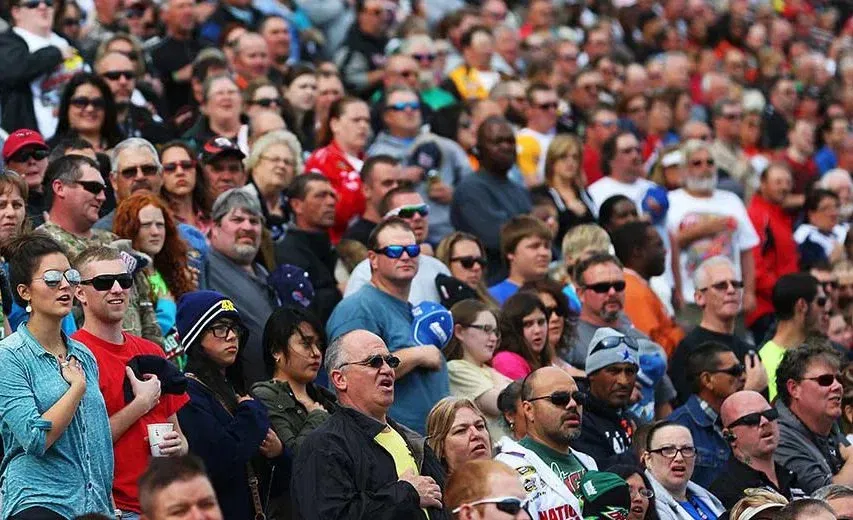
Imago
Via NASCAR

Imago
Via NASCAR

Imago
Via NASCAR

Imago
Via NASCAR
Jeff Gluck’s famous “Was it a good race?” poll on X has become the Monday morning truth serum for NASCAR fans. This week, the verdict on Gateway sits at 58% yes, which, if we’re being honest, is about as lukewarm as it gets. The race itself had its share of talking points: Denny Hamlin’s win, Kyle Larson and Ryan Blaney’s dust-up, Joey Logano flexing strategy muscles, and some tense playoff implications that kept the field edgy.
Watch What’s Trending Now!
Yet, despite all that, the fanbase still seems split down the middle. And that split? It’s nothing new. Week after week, no matter the track, no matter the drama, NASCAR seems to find itself caught between two very different expectations. The bigger question is: Why can’t fans ever agree?
The never-ending tug-of-war between fans and the sport
When it comes to NASCAR’s playoff schedule, the divide between what drivers want and what fans crave couldn’t be clearer. On the Door Bumper Clear podcast, Freddie Kraft summed it up bluntly: “Most drivers I think would rather run Gateway than Atlanta… The fans I think would all agree they’d rather watch a race in Atlanta than Gateway.” That difference, he said, is at the heart of NASCAR’s biggest balancing act.
Jordan Bianchi expanded on Kraft’s point, comparing it to other sports: “It’s a constant tug-of-war between entertainment versus sport. But we see that in all sports. The NFL, 20 years ago, was very defensive-oriented… and they realized like we got to make this more offense-friendly because it’s more palatable for the TV audience. And that’s where NASCAR is at.”
Atlanta and Gateway couldn’t be more different in what they demand from drivers. Atlanta, recently repaved into a superspeedway-style track, produces pack racing and frequent multi-car wrecks. It’s great for drama but chaotic for strategy. Gateway, meanwhile, is a flat 1.25-mile oval emphasizing tire management, braking, and precision. There’s less chaos, more chess. Each delivers entertainment in completely different ways.
But, fans want to watch a race in Atlanta rather than at Gateway (due to the drama it offers), whereas playoff drivers would rather run at Gateway than at Atlanta (due to the technicalities and skills required). But here’s the kicker. As Bianchi pointed out, no matter what, fans can’t seem to make up their minds.
“Fans are going to complain… You have to be very careful about just making your decisions off of what fans say because what fans are you talking to?… NASCAR fans, particularly, are very very hard to kind of, you know, pin down on what they want. And it’s always like a moving target.”
Even drivers like Austin Cindric see the challenge in catering to one side or the other. He argued that variety should take precedence: “If we put Darlington and then Gateway, what do you think is going to happen… pretty similar race… I think emphasizing the variety and sensationalizing that is much greater than doing the same thing week to week.”
In short, the sport sits on a tightrope. NASCAR needs to keep drivers satisfied, create drama for fans, and preserve the integrity of competition. All while trying to hit a moving target. Hopefully, whatever they choose in the end is for the greater good of the sport.
NASCAR heads to Bristol
As the NASCAR Cup Series playoffs head to Bristol Motor Speedway, anticipation builds for one of the most intense and unpredictable races on the calendar. The half-mile concrete oval is famed for its high speeds, steep banking, and constant door-to-door battles under the bright lights, making it a natural proving ground for championship contenders and desperate playoff drivers alike.
The upcoming race carries enormous significance as it serves as the elimination event for the Round of 16, where drivers must either perform or face playoff heartbreak. One major storyline centers on Kyle Larson, who arrives as the defending Bristol winner and seeks to make it three consecutive Cup race wins at the track. Larson’s aggressive style and superb short-track experience make him a clear favorite to dominate again.
Another key narrative is Denny Hamlin’s quest for his elusive NASCAR championship, extending from his playoff form and recent victories. Hamlin’s mastery of tire management and pit strategy has often paid dividends at Bristol, a track where races can be won or lost on the timing of pit stops and navigating laps with worn tires.
Finally, the elimination pressure adds unpredictability. Drivers on the playoff bubble, such as Alex Bowman and others, will push hard to secure their spot in the next round, raising the stakes for aggressive moves, risky fuel mileage gambles, and late-race restarts that could produce dramatic shifts in the standings.
With high stakes, fierce rivalries, and Bristol’s aggressive racing style, the upcoming race promises to deliver the kind of thrilling, edge-of-the-seat action that has made Bristol Motor Speedway a must-watch event year after year.


